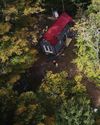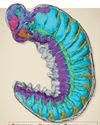
ALMOST EVERYTHING WE OWN TODAY-SMARTPHONES, laptops, TVs, air purifiers, refrigerators, gaming consoles, and even electric vehicles-requires power. Losing power can be a minor annoyance or a dire situation that threatens your safety or even your life.
Extreme weather events, which have become more frequent, can disrupt power systems and cause outages that last for hours or drag on for days. Not only can a loss of power keep you in the dark, but it can affect a whole litany of things like stopping your refrigerator, disabling your basement's sump pump, interrupting use of a medical device, or even stranding you if you drive an electric car.
But the solution is simple: A generator or portable power station can ensure you always have power where you are. Whether that means at home, camping, or living off the grid, one of these devices gives you the ability to charge your gadgets or power your appliances and equipment no matter the conditions.
A generator can be a great investment for all these reasons, and best of all, you don't have to commit to a big unit sitting fixed in your backyard if you don't want to; there are portable models that you can deploy when needed and bring with you for camping and cookouts.
Before running out to buy a generator, it's important to think about how and where you're going to use it. There are several types of generators to consider: standby, portable, and inverter. Each requires a certain type of fuel, and some work with more than one.
Generators typically run on gasoline, but some dual-fuel models can run on gas or propane. There are even tri-fuel models capable of running on gasoline, propane, or natural gas. Additionally, there are portable power stations-different from portable generators since they use a battery bank-that are easy to take on the go. These are ready to run your power tools, charge electronics, or even keep appliances going when the power's out at home.
Diese Geschichte stammt aus der September - October 2022-Ausgabe von Popular Mechanics US.
Starten Sie Ihre 7-tägige kostenlose Testversion von Magzter GOLD, um auf Tausende kuratierte Premium-Storys sowie über 8.000 Zeitschriften und Zeitungen zuzugreifen.
Bereits Abonnent ? Anmelden
Diese Geschichte stammt aus der September - October 2022-Ausgabe von Popular Mechanics US.
Starten Sie Ihre 7-tägige kostenlose Testversion von Magzter GOLD, um auf Tausende kuratierte Premium-Storys sowie über 8.000 Zeitschriften und Zeitungen zuzugreifen.
Bereits Abonnent? Anmelden

ONE OF THE 'GREATEST THREATS' TO THE PACIFIC NORTHWEST ISN'T WHAT YOU THINK.
EXPERTS ARE PREPARING THE REGION AGAINST THE THREAT OF DANGEROUS VOLCANIC MUDFLOWS, KNOWN AS LAHARS, WHICH COULD INUNDATE THE COMMUNITIES SURROUNDING MT. RAINIER IN AS LITTLE AS 30 MINUTES.

THE WORLD'S TOUGHEST ROW
They rowed 3,000 miles across the Atlantic, battling unpredictable weather, chaotic seas, and finicky equipment. But what they discovered gave them profound new insights into the power of the ocean.

HOW TO DIY OFF-GRID SOLAR
SPEND THE TIME UP FRONT AND PLAN IT CAREFULLY TO AVOID DISAPPOINTMENT

Are We on the Verge of an ARMS RACE in SPACE?
RUMORS OF A RUSSIAN SPACE NUKE, ALONG WITH OTHER SATELLITE-TARGETING WEAPONS, HAVE MADE GEOPOLITICAL TENSIONS EXTEND INTO ORBIT.

Fresh Fingerprints on an Ancient Statue
A CLAY FIGURINE HAS SPENT MILLENNIA incomplete, waiting at the bottom of a lake for its long-dead craftsman to finish the Iron Age-era statuette.

Quantum Entanglement in Our Brains
IT HAS LONG BEEN ARGUED THAT THE human brain is similar to a computer. But in reality, that's selling the brain pretty short.

The Tools of Copernicus
WAY BACK IN 1508, WITH ONLY LIMited tools at his disposal, Nicolaus Copernicus developed a celestial model of a heliocentric planetary system, which he described in hist landmark work De revolutionibus orbium coelestium. It was a complete overhaul of our conception of the universe-one that, unfortunately, earned him the ire of the Catholic church for decades after his death-and forever changed the way we look at the stars.

Building a Sixth-Generation Bomber Raptor
THE GLOBAL COMBAT AIR Programme (GCAP)-a project by the U.K., Italy, and Japan to develop a sixth-generation stealth fighter-has been busy at the drawing board reshaping its vision of the future of air warfare. And judging by the new concept model unveiled at this year's Farnborough air show, that future has big triangular wings.

The Electroweak Force of the Early Universe
TODAY, THE UNIVERSE AS WE KNOW IT IS governed by four fundamental forces: the strong nuclear force, the weak nuclear force, electromagnetism, and gravity.

This Ancient Fossil With a Brain and Guts
WE KNOW WHAT FOSSILS LOOK like. For example, typical dinosaur fossils are bones turned to stone and preserved from the passage of time, located, if we're particularly lucky, in large collections that can be reassembled to represent the beast they used to prop up in their entirety.